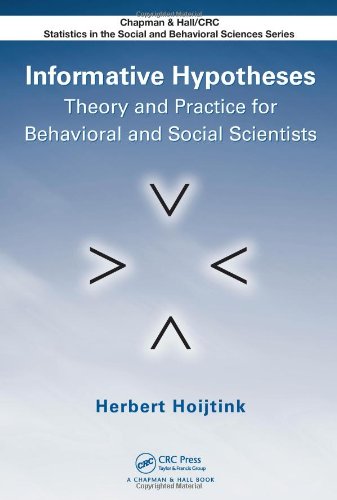

Most ebook files are in PDF format, so you can easily read them using various software such as Foxit Reader or directly on the Google Chrome browser.
Some ebook files are released by publishers in other formats such as .awz, .mobi, .epub, .fb2, etc. You may need to install specific software to read these formats on mobile/PC, such as Calibre.
Please read the tutorial at this link: https://ebookbell.com/faq
We offer FREE conversion to the popular formats you request; however, this may take some time. Therefore, right after payment, please email us, and we will try to provide the service as quickly as possible.
For some exceptional file formats or broken links (if any), please refrain from opening any disputes. Instead, email us first, and we will try to assist within a maximum of 6 hours.
EbookBell Team

4.4
92 reviewsWhen scientists formulate their theories, expectations, and hypotheses, they often use statements like: ``I expect mean A to be bigger than means B and C"; ``I expect that the relation between Y and both X1 and X2 is positive"; and ``I expect the relation between Y and X1 to be stronger than the relation between Y and X2". Stated otherwise, they formulate their expectations in terms of inequality constraints among the parameters in which they are interested, that is, they formulate Informative Hypotheses.
There is currently a sound theoretical foundation for the evaluation of informative hypotheses using Bayes factors, p-values and the generalized order restricted information criterion. Furthermore, software that is often free is available to enable researchers to evaluate the informative hypotheses using their own data. The road is open to challenge the dominance of the null hypothesis for contemporary research in behavioral, social, and other sciences.